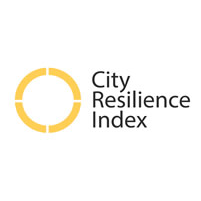City Resilience Index
Building resilience in cities requires an understanding of both what contributes to resilience and how it can be measured. To address this gap, Arup has developed the City Resilience Framework and the City Resilience Index with support from The Rockefeller Foundation. These tools provide cities with a comprehensive, accessible, technically robust and globally applicable basis for assessing and measuring resilience at a city scale.
The City Resilience Index provides cities with a common language and a set of tools to benchmark their performance against other cities, identify strengths and weaknesses, and measure and monitor resilience over time. In doing so, cities can be empowered to take action, share knowledge and experience, enhance urban planning practices and make more informed investment decisions. In strengthening their capacity to withstand, recover from, and adapt to shocks and stresses, cities can avoid extensive disruption and suffering.
The City Resilience Index provides a comprehensive and technically robust basis for measuring city resilience that is globally applicable. It comprises 58 resilience indicators assessed through 156 questions, drawing upon both qualitative and quantitative data. Responses to these questions are aggregated and presented according to the 12 goals of the Framework. To date the Index has been tested in five cities: Shimla, India; Concepcion, Chile; Arusha, Tanzania; Hong Kong, China; and Liverpool, UK.

